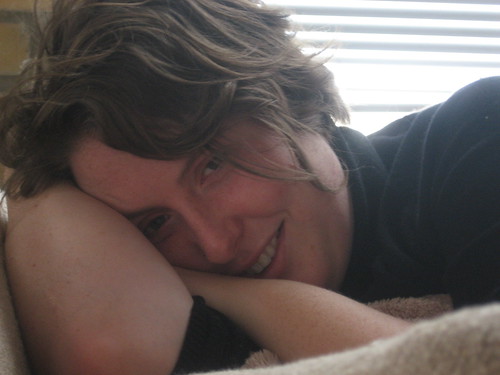Will Rachel Bloom Get the Last Laugh?
Rachel #Rachel

Anyone who’s familiar with Rachel Bloom’s work—whether it’s the Emmy Award-winning television series Crazy Ex-Girlfriend or her popular YouTube videos—knows that you can reliably expect two things from her: comedy and music. So, it’s not too surprising that Bloom’s new Off-Broadway offering, Death, Let Me Do My Show, running through September 30 at the Lucille Lortel Theatre in New York City, offers plenty of both. Bloom takes the stage in a sparkly suit and delivers sharp jokes and sometimes-bawdy musical numbers that touch on everything from Dear Evan Hansen to where dogs go when they die; what might throw fans for a loop, however, is how serious Bloom gets.
Death is absolutely a funny show, but at its core is about more than just laughs; it’s about subverting the notion that dying is easy and comedy is hard. Over the course of the evening, Bloom tells stories from her own experiences during the coronavirus pandemic—becoming a mother and losing a dear friend—and while she wraps her most harrowing experiences with props and punchlines, what her show does more than anything is leave audiences thinking—about loss, about the futility of the plans we make, about living because it’s only better than the other options. Here, she talks to T&C about creating comedy out of chaos.
In her new Off-Broadway musical comedy show, Rachel Bloom grapples with life and loss—without giving up her trademark wit or musical numbers. Emilio Madrid
The premise of the show is that it’s one you were planning to do before the pandemic and are now revisiting… but then things get complicated. How did you develop the concept?
I put a lot of thought into this; I’ve been working on it for two years. I’m trying to strike so many balances, one of which being how do I talk about my experience of what I went through in 2020 without saying I’m the authority on grief. I also tried to be true to [my late writing partner] Adam with a show he would have appreciated, which is still fundamentally a comedy show. It’s a comedy box that I’m trying to fit a lot of other stuff into.
How do you turn your real-life grief into work like this?
The structure was always going to be the loose one you see. I outlined plot points on a white board but also ideate and blue sky and work with my director, who’ll say, “do a free write on your anger.” There’s a lot of experimenting with how things feel or watching videos of the show after the fact to see what’s working.
In 2019, Bloom won an Emmy Award for her work on the series Crazy Ex-Girlfriend. The role also earned her a Golden Globe in 2016. Amy Sussman – Getty Images
You’ve worked in TV, film, music, and more. What made Off-Broadway feel like the place for this?
First of all, you go where the gig is. Off-Broadway was interested and the Lortel was available. But it’s important for the room not to be too big, so you lose the intimacy, or too small, since you can’t always fill that space with music and a certain energy. For the type of show this is, Off-Broadway feels right.
What comes first, the songs or the jokes?
Even if I have a song idea, the book always comes first. If I can’t get it to lead to a certain song idea, I’ll abandon the song. Everything has to come out of the story. But it’s not a precise science; where do we feel like we haven’t had a song in a while and what’s a song that could be of service?
Bloom’s knack for using musical theater to deliver jokes has been apparent in her work on screen–including this number at a 2017 awards show—and on stage, as seen in Death, Let Me Do My Show.Kevin Winter – Getty Images
We’re entering a period when a lot of people are using art to look back on our collective experience, seeing how different it was for all of us.
The show is me working out my emotions and conclusions in real time. A lot of people had an experience with the pandemic of being bored in lockdown; for me it was raising a newborn while grieving. It’s important to talk about trauma and grief, and to remember that this wasn’t just a bunch of people baking bread. I was also dealing with my own crisis; when you’re dealing with death, how do you move forward?
Does performing this every night give you a new perspective on what you went through?
There are things that occur to me all the time, that I’m not discussing one element or another. When you create a fictional character, you’re only dealing with information pertinent to the story you’re telling. When you’re writing about your real life, you have to decide what you’re going to include and what you’ll leave out. That’s always a challenge.
You Might Also Like